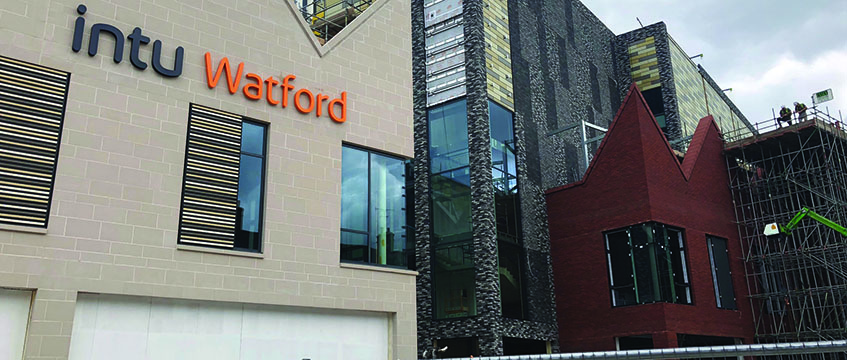Intu results: Retail values shifting from bottom up
Shopping centre owner intu today revealed in its annual results that weakening sentiment in the retail sector led to value in its assets “plummeting”.
These results show just how far confidence in the retail sector has tumbled over the past 12 months. Values in intu’s assets have fallen almost 12% from 2017. Values have dropped 1.3% since the start of 2014, taking into account some relative increases and investment in assets such as intu Watford, as well as the outright purchase of intu Merry Hill in 2016.
In recent months, the goal posts have been moving. Intu is now “actively pursuing” non-retail development opportunities, particularly around its super-regional centres, including residential. Market confidence, insolvencies and (most importantly) the massive structural changes in physical retail property are now influencing valuations of space at the top end of retail real estate.
Shopping centre owner intu today revealed in its annual results that weakening sentiment in the retail sector led to value in its assets “plummeting”.
These results show just how far confidence in the retail sector has tumbled over the past 12 months. Values in intu’s assets have fallen almost 12% from 2017. Values have dropped 1.3% since the start of 2014, taking into account some relative increases and investment in assets such as intu Watford, as well as the outright purchase of intu Merry Hill in 2016.
In recent months, the goal posts have been moving. Intu is now “actively pursuing” non-retail development opportunities, particularly around its super-regional centres, including residential. Market confidence, insolvencies and (most importantly) the massive structural changes in physical retail property are now influencing valuations of space at the top end of retail real estate.
Value must now be secured not solely on the number of shops, but on the quality of the destination as a whole. Recent extensions and refurbishments at Watford and Lakeside show that reinvestment of capital is likely to come in these formats in future. The addition of residential space into these areas is an attractive proposition, especially considering the UK’s lack of affordable housing.
Investor inertia suppresses retail values
Last year was one of the quietest for retail investment, with only £6.1bn of real estate changing hands in 2018, according to Radius Data Exchange, a 47% drop in activity from the previous year. The lack of confidence in the market has trickled up from occupiers through to the top end of investment. A wave of retailer insolvencies has eroded appetite in shopping centre schemes, and most owners are holding off releasing stock to the market.
Rental covenants have come under pressure in the wider sector, too, combining with treacherous economic headwinds and acquisitive inertia from investors. Until pricing softens, it is unlikely that volumes will pick up, as investors continue to deploy capital on more attractive assets. As a result, yields have continued to move outwards since 2016.
Value in the sector can still be found in smaller high-streets assets, though larger REITS and overseas investors will pause to assess the situation following the UK’s expected departure from the EU.
To send feedback, e-mail james.child@egi.co.uk or tweet @JamesChildEG or @estatesgazette











